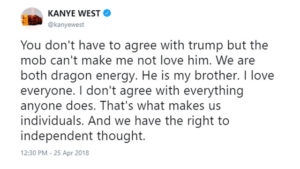So, if you didn’t see it last week, Business Insider decided to run a story about how awful it is to work at Amazon in one of their warehouses. Why is it awful to work one of those hourly paying jobs? They time your breaks, limit you screwing around talking to coworkers all day, and hold you accountable to work! The horror!!!
You didn’t take that job at Amazon to actually do work! How dare they!
From the article:
Amazon “pickers” move around the warehouse on a predetermined route to collect items for delivery, scanning each one with a handheld scanner, which times the length between scans, employees said.
They say pickers must hit a certain number of scans per hour, and if they miss their targets, a manager will show up to see what they’re doing.
Employees say that things like spending time talking to co-workers, going to get a drink, or even taking too long to find a package are billed as “time off task,” too much of which leads to penalty points for an employee. Get enough of those, and you’re fired.
That — combined with security cameras dotting Amazon’s warehouses, its airport-style security checks, and short breaks — makes employees feel like “robots,” they said. And it’s all in the service of getting those parcels out faster.
So, Amazon puts performance targets on hourly workers and has security cameras to make sure no one steals all of the stuff Amazon has in their warehouses. Yeah, that sounds awful!
Amazon also doesn’t allow hourly workers to bring their cell phones into the warehouse and they must lock them in lockers. They can access those on their 2 fifteen minute breaks, or their 30-minute lunch break. Amazon also has each employee go through a metal scanner when entering the warehouse. I think a lot of employees would love that level of security at their job!
So, I have a bit of a unique take on this because one summer when I was in college I worked as a picker for a grocery wholesaler in a warehouse environment!
One major complaint in this article is that the expectations are too high for Amazon warehouse workers. You can’t even go to the bathroom for fear of missing targets, and you get in trouble for talking to co-workers while you’re on the clock, if you miss those targets.
My first month as a Picker was awful! I never made ‘rate’ (met my targets) because I didn’t know how to do the job well. I was stressed out! By month 3 I made my targets easily, but it was about effort and knowing how to work most efficiently. The targets are based on how long would it take a normal performing employee to do certain tasks.
Let’s say a Picker gets an order and that order target is 30 minutes. The best Picker can probably do that order in 20 minutes. The extra 10 minutes they can bank towards their overall daily target. The worst worker might take 45 minutes to complete that order, so now they’re behind. So, you can see how someone who is on task and focused can actually give extra effort, make target easily and the day really isn’t so bad.
I can see how some of the things happened in the article because if the job is important to you, you’re going to do what it takes to keep that job. But, I’ll say, these are outlier behaviors and inappropriate and it sounds like Amazon terminated individuals doing this.
Amazon has made it crystal clear in everything they do when it comes to hiring. We only want to hire people who want to work hard and be successful. CRYSTAL CLEAR! Many people want to work at Amazon because they have really good pay and benefits. Unfortunately, most people can’t handle the expectations. That doesn’t make Amazon a bad place to work.
I’m not saying Amazon is the best place in the world to get a job. For some, it will be, for others it won’t be. Is Amazon a bad place to work? No. Is Amazon a hard place to work with high expectations around performance? Yes.
I think it’s a shame that Business Insider would actually write this garbage as an Amazon attack piece. They should be writing it from the take of why aren’t more employers trying to emulate what Amazon is doing!


